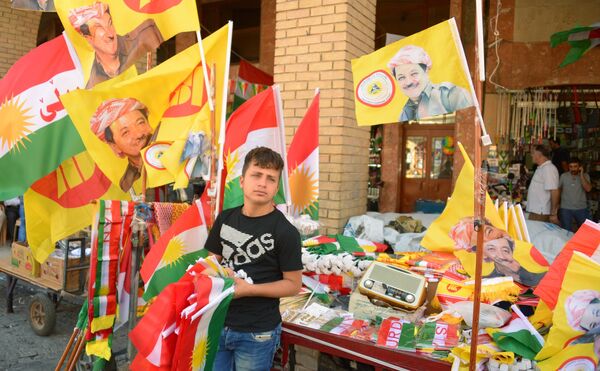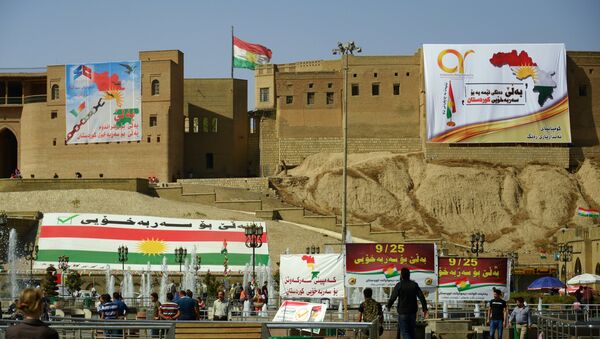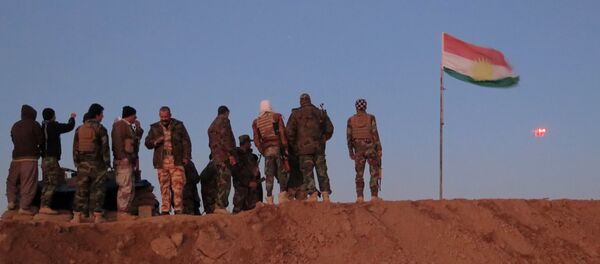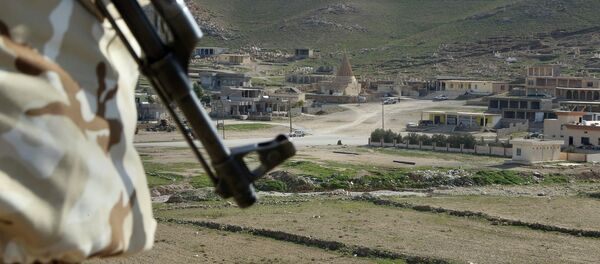Commenting on the upcoming occasion and all the buzz it is surrounded with, Dogacan Basaran, a Turkish expert at the Ankara Center for Crisis and Policy Studies (ANKASAM) explained to Sputnik Turkiye why the region has very slim chances of becoming autonomous, even if the voting does take place.
He noted that Turkey and Iran have openly objected the voting.

"On Monday, Iraq's Supreme Court issued an order to suspend the holding of the referendum set for September 25… until it examines the complaints it has received over this plebiscite being unconstitutional. Thus it is still unclear whether it will take place at all," the expert explained.
He further added that even if the voting does take place and Iraqi Kurds do vote for their independence, it won't be enough for Kurdistan set up autonomy from Baghdad, as it is going to face serious opposition among regional players. It will face a difficult struggle obtaining recognition for the state, defining its borders and setting up state structures. It is practically impossible to pursue any initiative or process if statehood is objected to by both Iran and Turkey, he said.
"The historic experience demonstrates that in the periods when Turkey and Iran consolidate their positions on a certain issue, any attempts by external forces to impose their initiatives on these two countries do fail. Judging by this experience, we can assume that Iraq Kurdistan won't get any independence because it is opposed by both Ankara and Tehran," Dogacan Basaran told Sputnik.
On September 25, Iraqi Kurdistan is set to hold a long-scheduled referendum on its independence from Baghdad.
On Friday, President of Iraqi Kurdistan Masoud Barzani announced his refusal to postpone the voting despite all the pressure. A day before, some officials from Iraqi Kurdistan had expressed their readiness to delay it if Iraq, the US and UN confirm a set of demanded guarantees.
The expert noted that last week, Iran threatened to close all borders with Iraqi Kurdistan should the semi-autonomous region proceed with the planned referendum.
Meanwhile on Saturday, Turkey’s parliament voted to extend by a year a mandate authorizing the deployment of Turkish troops in Iraq and Syria, stepping up pressure against an independence referendum in northern Iraq’s Kurdish region in two days’ time.
Prime Minister Binali Yildirim said Turkey would take security measures as well as economic and political steps in response to the referendum, which President Tayyip Erdogan’s spokesman described as a “terrible mistake” that would trigger new regional crises.



